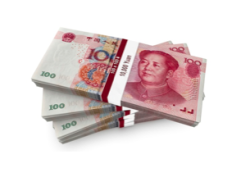在中国买东西:更便宜也更贵了
2014年7月31日
《亚洲质量聚焦》团队

繁荣的中国又登新闻头条了:持续的高通胀率,收入的增加和更强的法规。出人意料的结果是,生产者价格下降,而消费价格上涨。三大因素让在中国买东西变得既便宜又更贵。
中国好消息:工资上涨了
中国劳动力价格和通胀有上升的趋势。招聘,培训和留住专业工作人员的内部成本在过去5年中每年增加了10%。当然,eography起着重要的作用。
地域发展:地区差距更大
广东省的最低工资10年来翻了两倍以上。因此,高技能的员工收入和薪水都大幅增加。
任何人想要雇用熟练的劳动力将需要增加薪酬:在工业化的城市里,生活成本上升很快。
因此,许多厂商转向更便宜的省份找到便宜的,非熟练劳动力以努力降生产成本。然而,所有的人参与(即:物流公司,第三方检验公司等)看到他们的成本增加:将专业技术人员带到工厂,中间的环节是一个主要的成本动因。虽然运输方式变得更快速,便捷,他们价格也更昂贵,如果深夜出差,员工通常会得到补偿,除了薪水之外,还会有奖金补助。(更多资讯浏览中国进出口网)
可持续发展与合规性:家强监管监督
气候变化,饮用水和空气污染,腐败和低质量的产品是中国政府正在解决的问题。严格的立法和更密切的监督齐头并进。例如,质控行业,现在需要通过官员更频繁地进行审核。此外,他们还需要提供进一步的资料。
祝贺中国在过去10年里在财富、质量和可持续性方面所取得的成就。
那么你呢:你怎么看待,在中国买东西更便宜也更贵了的事实呢?
Posted: July 31, 2014
by Asia Quality Focus team
Prosperous China is in the news again with a sustained high inflation rate, rising incomes and stronger regulations. Surprisingly, as a consequence, producer prices are decreasing while consumer prices are rising. Three major factors make buying in China becomes both cheaper and more expensive.
China’s success story: better pay
Labor rates and inflation are on the rise in China. The internal costs of hiring, training and retaining professional staff have increased over 10% year after year in the past 5 years. Of course, eography plays an important role in that.
Development of the regions: greater distances
The minimum wage in Guangdong province more than quadrupled in 10 years. So, the incomes and salaries have increased drastically in places with highly skilled employees.
Anyone wanting to employ skilled labor will face increasing salaries: in the industrialized cities the cost of life is rising quickly.
Consequently many manufacturers move to cheaper provinces to find cheap, unskilled labor in an effort of dro production costs. However, all of the others involved (i.e.: logistic companies, third party inspection companies, etc.) see their costs increase: bringing skilled professionals to factories in the middle of nowher is a major cost driver. While modes of transportation are becoming faster and convenient, they are also more pricy, employees usually get compensation if traveling late at night and bonuses in addition to a salary.
Sustainability and compliance: stronger regulatory supervision
Climate change, contamination of drinking water and the air, corruption and a reputation for low quality products are all issues that are being tackled by the Chinese government. Stricter legislation and closer supervision go hand in hand. The QC industry, for example, is now required to undergo auditing by officials more frequently. In addition, they are required to provide further documentation.
Congratulations to the Chinese for the achievements made in the past 10 years in terms of wealth, quality and sustainability.
And you: how do you deal with the fact that buying in China has become both cheaper and more expensive?











